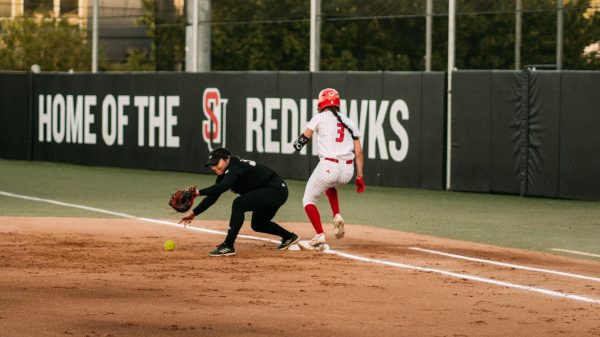Switzerland Sides with Semenya: IAAF Ruling Overturned
Castor Semenya, a South African middle-distance runner specializing in the 800-meter run, has made headlines in the news time and time again for her notable performances—but more recently for different reasons.
Semenya, a long time sports- enthusiast who originally began running as training for soccer, took the gold at the women’s 800-meters during the 2009 and 2017 World Championships. She also took silver at the 2011 World Championships in the same event. At both the 2012 and 2016 Summer Olympics, Semenya took the gold medal.
Following Semenya’s continued success at the World Championships, questions began to arise regarding her biological sex. The rapid athletic progression Semenya experienced in her 800-meter personal bests sparked the interest of the International Association of Athletics Federations (IAAF).
Semenya took a sex verification test, but results were never officially published. November of 2009 marked the start of an official investigation, but by July 2010 Semenya was cleared to compete again in women’s competitions.
In 2015, a rule change regarding the policy on suspension for individuals with naturally high levels of testosterone in women notified the IAAF that it had two years to provide evidence to support the original policy.
April 16 of 2016 marked an iconic day in history as Semenya became the first individual to win the 400-meter, 800-meter and 1500-meter titles at the South African National Championships. With two world- leading marks within a short four- hour span, speculations arose once again involving Semenya’s true sex.
Most recently, the IAAF announced a new “differences of sex development” rule. In 2018, it ruled that any given athlete with specific disorders of sex development, testosterone levels of 5 nmol/L and above, and androgen sensitivity must take medication to lower their testosterone levels.
Semenya did not back down from the official ruling, announcing her decision to legally challenge the IAAF rules on June 19, 2018. The IAAF amended the regulations, but Semenya appealed the decision to the Federal Supreme Court of Switzerland.
As of June 3, 2019, Switzerland’s supreme court temporarily suspended testosterone regulations, handing a legal victory to Semenya. As a result, Semenya will not be forced to take hormone-suppressing medication and will be allowed to return to competition.
The IAAF has the option to challenge the ruling, and although a court date has not yet been established it could take place as soon as the end of June.
If the suspension remains in place, however, Semenya will be able to complete the remainder of her season and participate in the Diamond League’s, where she looks to defend her title in Qatar in September.
Nicole may be reached at
[email protected]







![Josh Gibson Supplants Ty Cobb, Babe Ruth, as Baseball’s Best Hitter [OPINION]](https://seattlespectator.com/wp-content/uploads/2024/05/gettyimages-72075891-600x338.jpg)



